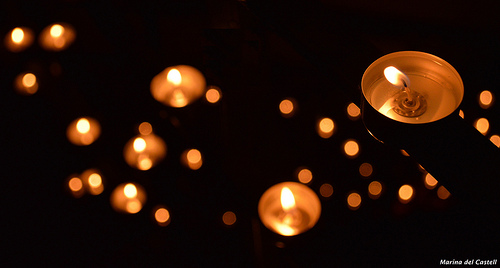For several weeks, we’ve heard a gospel of endurance and serving those who suffer. We were taken back to an early teaching, to the Sermon on the Mount. We heard Jesus preach
‘Blessed are the poor in spirit, for theirs is the kingdom of heaven.
‘Blessed are those who mourn, for they will be comforted.
We heard of a troubled future and Jesus’s cry
“Jerusalem, Jerusalem, the city that kills the prophets and stones those who are sent to it! How often have I desired to gather your children together as a hen gathers her brood under her wings, and you were not willing!”
We heard of a slave who was punished by his master for following GOD’s instructions.
And then we heard a new vision of righteousness
“for I was hungry and you gave me food, I was thirsty and you gave me something to drink, I was a stranger and you welcomed me, I was naked and you gave me clothing, I was sick and you took care of me, I was in prison and you visited me.”
We heard for the past month these pleas for listening and finding the weak and the powerless and treating them as if they were Jesus themselves. An inversion and retelling of the command given earlier in the text: Love GOD and love your neighbor as yourself.
We have heard these things on Sunday and we have gone back to our lives, trying to bring with us these new eyes to see. And then we experience a real test of endurance on Monday night watching Ferguson, Missouri. We watched a small suburb of St. Louis engulfed in rage and disappointment. We see these deeply wounded people as their last best hope for justice slips away like a burglar sneaking off with their last cups for water. Like a people who had already lost their plates and silverware and napkins and all the food from their refrigerator, and this was it. Their only means of filling their bellies is to stick their heads under a running faucet.
The images of the burning buildings and the charred remains this morning are haunting. They haunted my mind late into the night and into the early morning as I finally went to bed with the news that many of these buildings were left to burn. This community lit up, not by exploding shells and mines and the armaments of war, but the very personification of long-simmering suffering and tremendous outrage. The people of Ferguson are walking through fire and its firefighters, fearing for their safety, did not put out the flames.
It brought to my mind another human story. Not one bearing the heat of fire, but the oppression of water. I recalled the various reports of hospital and nursing home staff, fearing the deluge and might of Hurricane Katrina, who abandoned their work for their own safety. They abandoned people to die, alone, suffering, in the dark, literally and figuratively powerless.
Like the city of New Orleans, which had for decades called on the federal government to upgrade the levees to protect them from a hurricane exactly like Katrina, knowing that it would one day happen, the people of Ferguson have been pleading with state authorities for help, and what they have always received is silence.
May we today take on this living example as an opportunity to see what formation is really about. As I wrote in the first post in this series,
We must recognize, then, that it is not the content of the teaching or the exposure to it so much as the experience of being changed by it. We follow our rabbi as disciples so that we may be changed and become like her or him.
Our faith, therefore, is not forged in the comfort of couches but in the furnace of formation. We are continuously called to be formed and reforged as our work of following Jesus takes us through the fire and the water: through our lived experience of anger and suffering and lost hope, but more importantly, to be with and fight the fires that burn the bodies of others and resuscitate the people who drown in the waters of oppression.
We see that Jesus did not gather individuals to privately schedule their time with him: each independently following Jesus as Teaching Assistants to the tenured professor. They follow Jesus as a group, invited to not only watch or even participate in the work Jesus does, but are given the order to go out and do the work themselves, in pairs, then after he is gone, as a blessed community.
At their last night together, Jesus tells them to keep eating together, to remember this time and this work. Not just the bonds forged in the fires of struggle with one another as individuals, a band of brothers and sisters; but as a real reflection of how GOD’s work is accomplished. Through gathering for worship, mission, and formation.
May our prayers for those suffering in Ferguson fill our hearts. May we also seek out GOD in the fire, in the danger of living out GOD’s commands. May we struggle with our own prejudice and fear. And when we are being consumed by the flames, may others come to our aid, seeing the Christ within us.

For Further Reading
I strongly encourage you to read this article by the social psychologist, Christena Cleveland called “The Cross and the Molotov Cocktail”. Not for the faint of heart, Dr. Cleveland invites us to engage the essential question of Ferguson for the Christian observer:
Can you see the Imago Dei in these young men? Can you see the suffering Christ in their rage?